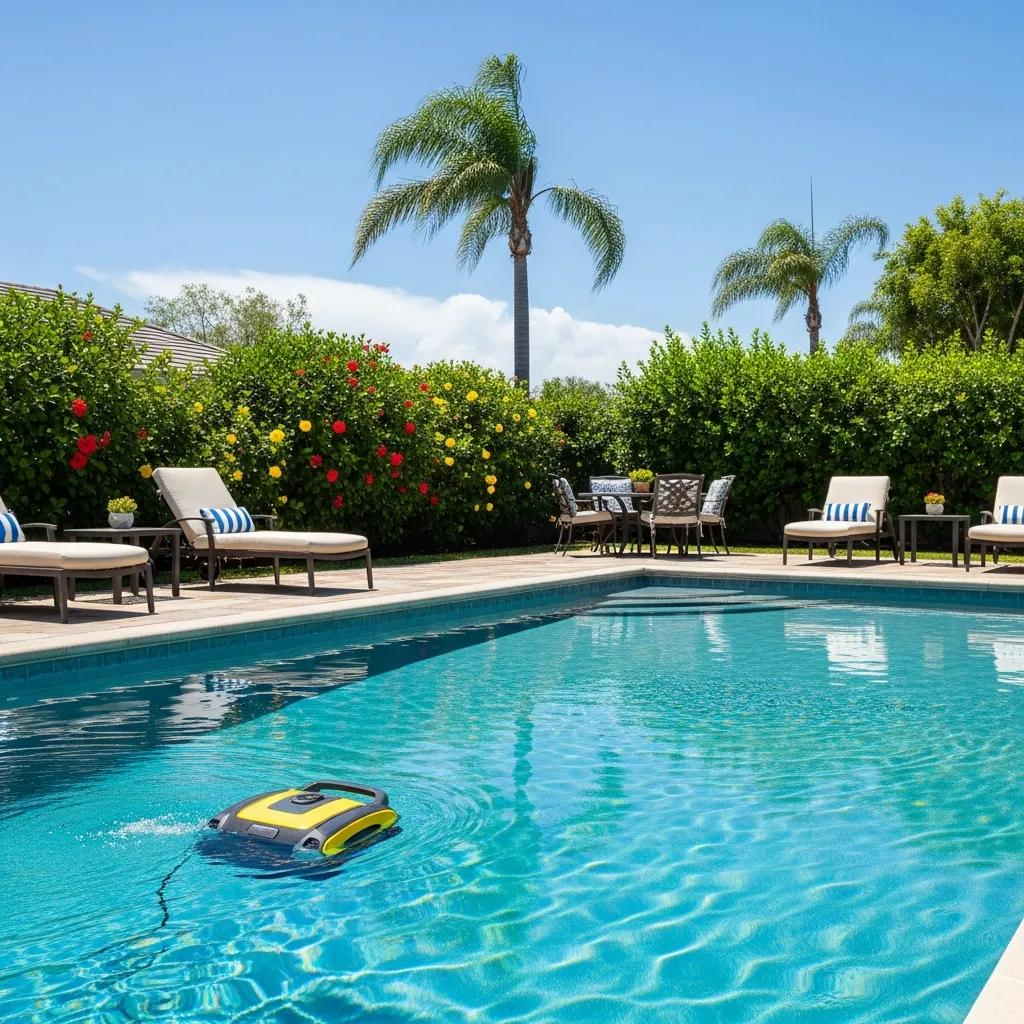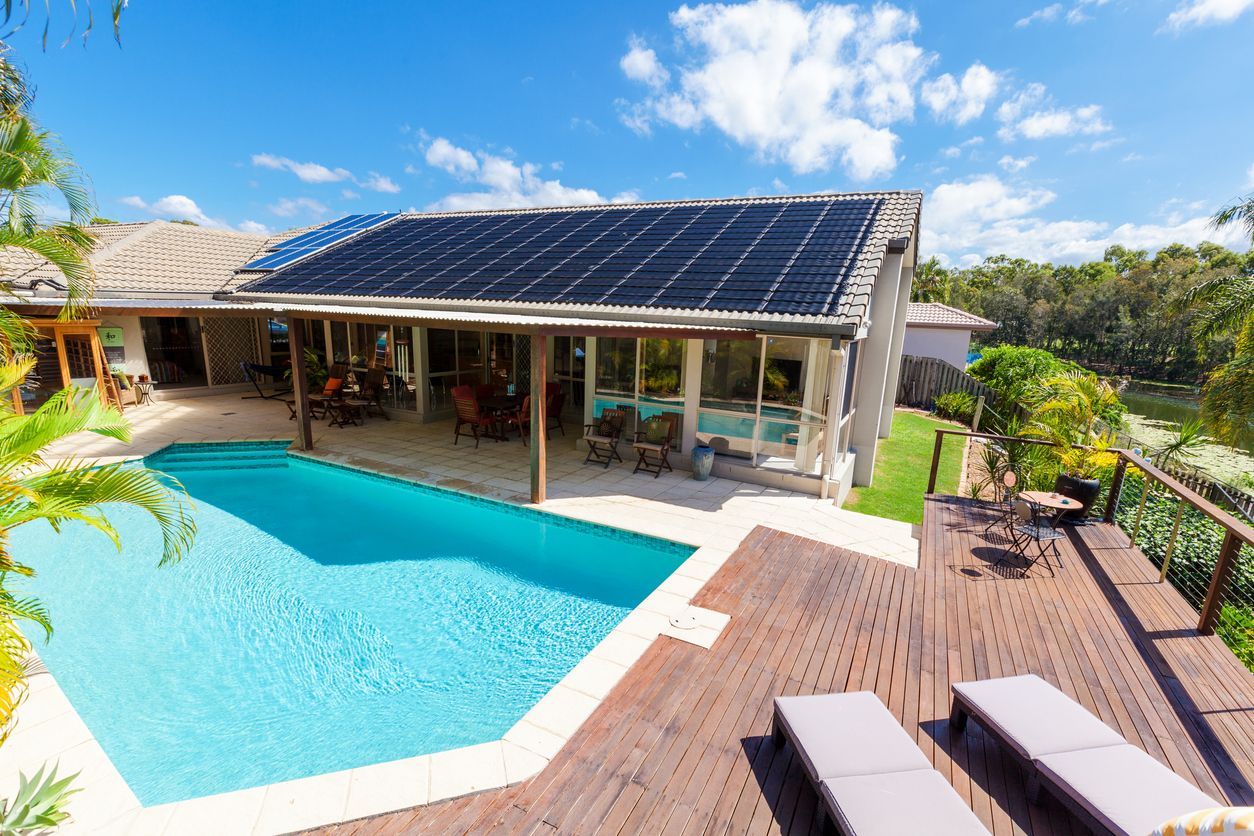
Extend Your Florida Swim Season: A Guide to Heating Options & Costs
Florida living means enjoying your backyard pool, often year-round. While the Sunshine State boasts incredible weather, cooler months can still dip water temperatures below comfortable swimming levels. If you dream of extending your pool season beyond the typical spring-to-fall window, you're in luck. Various proven methods can keep your pool warm and inviting, even when the air turns crisp.
This guide explores the most effective ways to extend your Florida swimming season, comparing their costs, efficiency, and suitability for different needs and locations within the state.
Understanding Florida's Swimming Climate
While South Florida often allows for near year-round swimming without heating, Central and North Florida experience cooler winters where water temperatures can significantly drop. Even in South Florida, temperatures in December and January can make swimming less appealing without supplemental heat. The goal of extending the season is typically to comfortably swim earlier in spring (like April) and later into fall and winter (October through December, and potentially January/February).
Key Methods to Extend Your Swimming Season
Several technologies and strategies can effectively raise and maintain your pool's temperature in Florida:
1. Solar Pool Heating
Solar pool heating systems utilize the sun's energy to warm your pool water. Pool water is pumped from your pool, through solar collectors mounted on your roof or another sunny spot, and then returned to the pool warmer.
- Pros: Extremely low operating costs (mainly the cost of running your pool pump), environmentally friendly, good lifespan (often 10-15 years or more). Highly effective on sunny days. Works well in Florida's abundant sunshine, particularly in South and Central Florida.
- Cons: Performance is dependent on sunlight and ambient temperature. Doesn't work at night or on heavily overcast/cold days. Limited temperature increase (typically 10-15°F rise compared to unheated). Requires adequate space for collectors.
- Types: Most common are rigid panel systems. Other options include flexible mats or floating solar covers (primarily for heat retention).
2. Electric Air Source Heat Pumps
An electric heat pump works like a reverse air conditioner. It pulls heat from the surrounding air and transfers it to your pool water.
- Pros: Provides reliable, on-demand heating regardless of direct sunlight. More consistent performance than solar on cloudy days or at night. Highly energy-efficient in moderate Florida temperatures (often achieving a Coefficient of Performance (COP) of 3-5, meaning they produce 3-5 units of heat energy for every 1 unit of electrical energy consumed).
- Cons: Higher operating costs than solar. Efficiency drops significantly when ambient temperatures fall below 50-55°F, making them less effective during the coldest North Florida snaps. Requires a significant electrical connection, potentially necessitating panel upgrades.
3. Gas Pool Heaters
Gas heaters burn natural gas or propane to directly heat pool water as it passes through a heat exchanger.
- Pros: Fastest heating method, provides rapid temperature increases on demand. Compact size.
- Cons: Highest operating costs by far due to fuel consumption. Less environmentally friendly compared to solar or heat pumps. Requires a gas line connection. Best suited for quick, occasional use rather than continuous temperature maintenance.
4. Pool Covers (Solar & Automatic)
While not a heating method itself, a pool cover is crucial for retaining heat, regardless of how you warm your water. Solar covers (often blue bubble wrap-like material) also capture some solar energy.
- Pros: Significantly reduces heat loss (by up to 75% or more) and evaporation. Makes heating systems much more efficient and reduces running costs. Relatively low upfront cost for solar covers.
- Cons: Requires manual effort to put on/take off (unless automatic). Can be cumbersome to store. Affects pool aesthetics.
5. Pool Enclosures
A screen or glass enclosure provides a greenhouse effect, trapping heat and raising the ambient temperature around the pool. They also act as a windbreak.
- Pros: Can raise pool temperature by several degrees through passive solar gain and reduced wind chill. Excellent for debris, insect, and UV protection. Can make heating systems more effective.
- Cons: High upfront installation cost. Aesthetics are a factor.
Detailed Comparison: Costs and Efficiency in Florida
Choosing the right method depends heavily on your budget, desired swim temperature, location within Florida, and environmental priorities. Here's a look at the key factors:
Installation Costs
The initial cost varies significantly by system type, pool size, and site-specific conditions (like roof access for solar or electrical upgrades for heat pumps). [Based on research data from Angi, UMA Solar, and other sources]:
| System Type | Estimated Installation Cost Range (Typical Residential Pool) | Notes |
| :---------------------- | :----------------------------------------------------------- | :--------------------------------------------------- |
| Solar Pool Heating | $4,000 - $7,000+ | Varies based on pool size, panel quantity, roof complexity. May be higher for very large pools. |
| Electric Heat Pump | $2,500 - $5,500+ | Plus potential electrical upgrades ($1,200 - $2,000+). Varies by size and electrical service. |
| Gas Heater | $1,500 - $4,000+ | Varies by size and gas line proximity. |
| Pool Cover (Solar) | $100 - $500+ | For standard solar blankets. Automatic covers are much higher. |
| Pool Enclosure | $8,000 - $25,000+ | Varies greatly by size, height, materials, and complexity. |
Note: These are estimates. Get specific quotes for your pool.
Running/Operating Costs
This is where the long-term difference becomes clear. [Based on research from UMA Solar, Underwood AC, and other sources]:
| System Type | Estimated Monthly Running Cost (Florida) | Notes |
| :---------------------- | :--------------------------------------- | :-------------------------------------------------------------------- |
| Solar Pool Heating | $20 - $60 | Primarily the cost of running the pool pump during the day. Almost free heat. |
| Electric Heat Pump | $75 - $200+ | Varies significantly based on ambient temp, desired temp, usage, and electricity rates. Colder weather increases cost. |
| Gas Heater | $150 - $450+ | Varies greatly based on frequency of use, temperature rise needed, and gas prices. Can be very expensive for continuous heating. |
| Pool Cover (reduces other costs) | Minimal to None | Saves on heating energy (any type) and reduces water/chemical evaporation. |
Over a 10-year period, the lower running costs of solar can result in significant savings compared to electric or gas heaters, often offsetting the initial installation cost difference.
Efficiency and Performance
- Solar: Highly efficient at converting sunlight to heat (50-85%), but performance is directly tied to weather conditions. Best for extending the season during sunny shoulder months (spring/fall) or providing warmth in South Florida during milder winters. The amount of heat gained depends on the collector size relative to the pool surface area.
- Heat Pump: High COP (efficiency) in moderate air temperatures (above 55°F). They provide consistent heat even on cloudy days or at night, but become less efficient and may struggle to reach target temperatures during cold snaps, especially in Central and North Florida.
- Gas: Rapid heating but low energy efficiency compared to solar or heat pumps. Best for quick temperature boosts for occasional swims.
- Covers/Enclosures: Dramatically improve the efficiency of any heating system by reducing heat loss. A heated pool without a cover loses heat rapidly overnight and on windy days.
Performance by Florida Region:
- South Florida: Solar alone can provide comfortable swimming for much of the year (8-10+ months, potentially year-round with a cover and good sun). Heat pumps are very efficient here due to warmer ambient temperatures.
- Central Florida: Solar provides a good extension (7-9 months). Heat pumps are effective but will see reduced efficiency during colder winter weeks. Gas can provide reliable heat during the coldest periods but at high cost.
- North Florida: Solar is less effective during the coldest months due to lower sun angles and colder ambient temperatures, providing perhaps a 6-8 month extension. Heat pumps are effective for shoulder seasons but may struggle significantly during winter cold snaps when temperatures drop below 50°F for extended periods. Gas is often the only option for reliable heating during the coldest weeks, or a heat pump combined with a cover and patience.
Hybrid Systems: Combining Methods
For the ultimate in season extension and efficiency, some homeowners opt for a hybrid system. A common approach is to use a solar pool heater as the primary heating source (providing low-cost heat whenever the sun is out) and supplement it with an electric heat pump for backup on cloudy days, cold snaps, or when needing to reach a specific temperature quickly. This can offer reliable year-round heating with lower overall running costs than relying solely on a heat pump for continuous heating.
Choosing the Right Solution for You
Consider these factors:
- Budget: What can you afford upfront vs. what are you willing to pay monthly? Solar has higher upfront but lower long-term costs. Heat pumps are moderate upfront and moderate-to-high monthly. Gas is lowest upfront but highest monthly.
- Desired Swim Season: Do you want 8 months, 10 months, or year-round swimming? Solar is great for extending shoulder seasons. Heat pumps or hybrids are often needed for reliable winter swimming, especially in Central/North Florida.
- Location: Where in Florida are you located? South Florida is ideal for solar. North Florida may require a heat pump, gas, or a hybrid system for reliable winter heating.
- Usage: Do you swim daily or only occasionally? Gas is best for occasional, rapid heating. Solar or heat pumps are better for consistent warmth.
- Environmental Concerns: Solar is the most eco-friendly option. Heat pumps are more efficient than gas.
- Pool Features: Do you have a pool cover or plan to get one? This significantly impacts the effectiveness of any heater. Do you have a pool enclosure?
Installation and Maintenance
Professional installation is highly recommended for any pool heating system to ensure safety, efficiency, and proper sizing. Maintenance varies: solar requires little maintenance (checking panels, plumbing), heat pumps need occasional cleaning and system checks, and gas heaters require regular checks on burners and heat exchangers.
Customer Testimonials

.png)
Pool Winterization Guide for Southwest Florida














